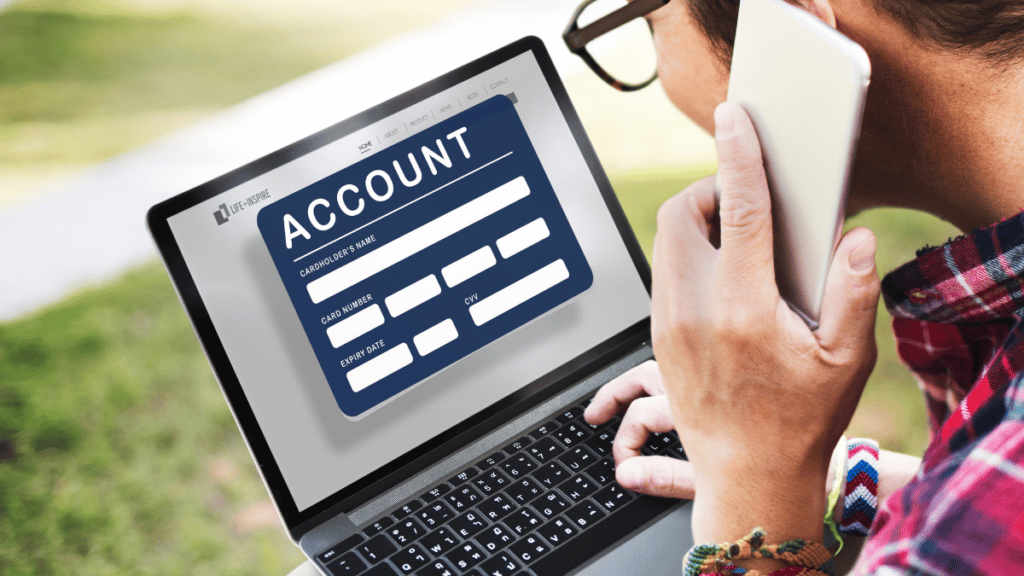Paying off debt takes more than just sending in payments—it takes a shift in how you think and spend. You don’t have to flip your life upside down. The real progress comes from small changes you stick with. Some habits may feel different at first, but they can make a big difference over time.
Saying No to Impulse Buys

You know that feeling when you walk into a store for one thing and walk out with a cart full of stuff? Saying no to impulse buys can feel strange at first, especially when the deals are tempting. But cutting out those “just because” purchases helps you save more for what truly matters. It’s all about sticking to your list and resisting the urge to buy on a whim.
💸 Take Back Control of Your Finances in 2025 💸
Get Instant Access to our free mini course
5 DAYS TO A BETTER BUDGET
Tracking Every Single Expense

At first, tracking every expense might feel like a chore. But once you get the hang of it, you’ll realize how much you’re actually spending. Using an app or a simple spreadsheet to log every coffee, meal, and subscription helps you see where your money is really going. It’s eye-opening—and it’s the first step to taking control of your budget.
Saying No to Social Pressure

It’s easy to feel the pressure to keep up with friends or coworkers when it comes to spending. Saying no to social events that require expensive contributions or activities that don’t fit your budget can feel awkward. But prioritizing your finances over others’ expectations helps you stay focused on long-term goals. True friends will understand, and you’ll feel better about not stretching your budget to impress anyone.
Focusing on Needs, Not Wants

Adopting a mindset of needs over wants can feel restrictive, especially when you’re used to treating yourself or indulging on little luxuries. But by identifying the difference between what you need and what you want, you can prioritize your spending. It might feel weird at first, but you’ll soon realize how much more freeing it is to focus on the essentials and build your savings.
Cutting Out Extra Subscriptions

Subscriptions add up fast, even when they seem small on their own. If you’re not using something often—like a streaming service or paid app—it may not be worth it. Canceling can feel weird at first, but the extra money each month makes a difference. Take a regular look at what you’re paying for and cut what you don’t need.
Avoiding Credit Cards for Everyday Purchases

Using a credit card for every purchase can feel like a normal habit, but it can also lead to debt. Paying with cash or debit helps you stay within your budget and avoid adding to your balances. At first, it may feel inconvenient, but once you get used to it, you’ll feel more in control of your spending and less tempted to overspend.
Waiting for Big Purchases

Being patient with big purchases feels strange if you’re used to getting things right away. But saving up for big-ticket items and waiting for the right time can help you avoid debt and overspending. By planning ahead, you’ll get what you want without relying on credit. It’s an empowering way to make purchases without the regret of a credit card bill later.
Automating Your Savings

Automating your savings may seem too hands-off at first, but it’s one of the best ways to stay consistent. Setting up automatic transfers to a savings account means you don’t have to think about it every month. You’ll see your savings grow without having to remember to put money aside, and you’ll be building your emergency fund or long-term savings effortlessly.
Avoiding High-Interest Debt

High-interest debt, like payday loans or credit card debt, can trap you in a cycle of paying just the minimum. Avoiding these types of debts in the first place might feel limiting, but it’s an essential habit for getting debt-free. If you’re tempted by easy credit, remind yourself that the long-term financial strain isn’t worth it. Stick to loans or credit lines that offer lower rates.
Planning for Financial Setbacks

While planning for financial setbacks may not feel like a priority, having an emergency fund or backup plan gives you peace of mind. Preparing for the unexpected feels uncomfortable, especially when everything is going smoothly, but it’s one of the best ways to protect yourself. Life happens, and being ready for the bumps in the road helps you avoid stress and debt.
Setting Clear Financial Goals

Setting concrete financial goals feels a little strange at first, especially when you’re not used to tracking your progress. But it gives you direction and something to strive for. Whether it’s paying off a certain amount of debt or saving for a big purchase, having a clear goal helps you stay focused and motivated to keep moving forward.
Giving Up Instant Gratification

Instant gratification is a habit many of us fall into, but it’s one that works against your long-term financial freedom. Whether it’s buying something just because it’s on sale or grabbing that extra coffee every day, giving up the immediate rewards may feel challenging. Over time, you’ll learn that delayed gratification is more rewarding in the long run, especially when you see your savings grow.
Prioritizing Debt Repayment Over Everything Else

When you’re in debt, it feels strange to prioritize it over other things like fun activities or even savings. But focusing on paying off your debt first is a crucial step to getting financially free. It might feel like you’re sacrificing, but the peace of mind you’ll get from being debt-free is well worth it. Once the debt is gone, you can focus on building your savings and achieving other financial goals.
Monitoring Your Credit Score Regularly

Checking your credit score regularly can feel like a task that isn’t urgent, but it’s key to staying on top of your finances. Keeping track of your credit score helps you spot any errors or fraud and gives you insight into how your financial habits are affecting your score. Monitoring it regularly might feel tedious, but it’s necessary for keeping your financial health on track.
Small Wins Over Time

The most important thing about debt-free habits is realizing that small, consistent changes will lead to big results. Each of these habits may feel strange at first, but they build up over time, helping you get closer to financial freedom. By sticking with them, you’ll create lasting financial stability and break free from the cycle of debt.
5 Crucial Tips To Pay Off Debt Fast and Live Debt-Free

Money touches every part of our lives, impacting our decisions, relationships, and mental health. But if you’re in debt, you’re not alone, and you can turn your finances around. Getting out of debt quickly is possible if you take the proper steps. These 5 Habits Will Help You Pay Off Debt Fast and Live Debt-Free



